Samia … From “spinsterhood” to “widowhood”
“I wish I didn’t get married. I wish I wasn’t a woman,” prayed Samia, who tried to escape society’s negative perceptions of her as a “spinster,” and ended up as the “widow of an old man” and the “servant of her family” again.
Samia (alias) surrendered to her family pressure and married a 73-year- old man, three years ago while she was only 35. However, she discovered that she became a nurse for a diabetic old man who needs someone to take care of him and support him during his last months in life.
Enab Baladi visited Samia at her home at al-Qamishli. However, despite her enthusiasm and eagerness to talk about her suffering and reveal her face and real name, her mother met Enab Baladi with a great rejection and stood against her daughter’s wish to talk to the media.
Samia later offered to tell her story without disclosing her true identity, and she began to speak about the suffering that began in her family’s home and ended up there again.
“‘Spinster, spinster,’ that’s what my father, brothers, and mother used to call me again and again. After my father passed away, my brother deliberately arranged my marriage to an old man.” She had no choice, but to surrender and live with her husband.
Samia asserted that the man she married was good. However, she couldn’t find a way they could get along with each other, and perhaps she did not find enough time to do so. He was so sick that he died about five months after their marriage.
The death of the old man marked the beginning of a new phase of great tragedies and the war added salts to the wounds, for it has caused her to become poorer and more frightened in addition to her family’s oppression; a situation she summarized with her words: “I became homeless and helpless”
The war, which exhausted Samia, has been at the root of the creation of dozens of similar cases. Lawyer Evin Kalash confirmed to Enab Baladi that the phenomenon of older men marrying women many years their juniors has become widespread in al-Hasakah after the war.
According to the lawyer, the poverty Samia was suffering from is one of the main causes of this phenomenon. Youth unemployment triggered “some girls’ preference for older men for their financial capabilities and readiness to provide these young women with a decent life.”
“The war increased the cases of marriage of old men and young girls because of the decline in the number of young males in the country, for some of them died during the war, became disabled or emigrated,” Kalash adds.
In this context, the lawyer justified some of the people’s concerns, which are specifically related to the waves of internal and external displacement, and which caused the increase of some cases of girls’ rape and harassment.
This phenomenon is not restricted to one area in Syria, because the reasons that led to its widespread hit the Syrians in different regions, and created similar crises.
In eastern Ghouta, records suggest that three elderly men married much younger women and teenage girls during one month with a significant age difference, according to the director of the Civil Registry, Islam al-Damashqi who confirms that most of these cases are widowers and men whose wives have been displaced.
Grandfather Mohammed Khaled from Hamouriyah is one of those men who married after the age of 70, and he sees nothing wrong with his remarriage, stating motives which are only limited to having a woman servant.
“My wife died and I remained single for five years. I did not want to get married. I did not want any of my children to be my servant, either. Therefore, I decided to marry in order to find someone who would serve me,” Mr. Mohammed, 75 years old, told Enab Baladi.
The story of Grandpa Mohammed Khaled meets with Samia’s to convey the idea of ”service,” which makes the husband a perpetrator gaining his rest at the expense of a victim bounded by the law of customs and traditions and difficult circumstances.
The director of the Civil Registry Department in Ghouta, Islam Al-Dimashqi, justified the marriage of Mohammed Khalid and other elderly people who are getting married with “being bored of loneliness and the need for stability.” Lawyer Evin Kalash believes that such marriages are negatively affecting women and depriving them of their rights.
Today, Mohammed Khaled’s wife is living with him “for better or worse” despite the siege imposed on eastern Ghouta to “serve him” and save him the trouble of asking for help.
Samia was unable to obtain any share of the heritage that she was legally entitled to, and her stepchildren denied her the house he had registered in her name before he died on the grounds that the process was not fixed in court. Therefore, she turned again into “a servant in her brother’s house.”
Elderly marriage in Syria “Single forever and never a widower even for a month”
The Syrian society tolerated the issues related to men and placed them in their natural context, giving men the opportunity it has not provided for the other half of society and disregarding the “slips” that a woman may encounter on the grounds that she is a “woman” while they are “men”. Women’s need for marriage is still considered as shameful according to the customs of the Syrian society, especially if she is getting older. However, when it comes to men it becomes available, allowed and encouraged, even if he is very old, following the saying “single forever and never a widower even for a month”
The marriage of an elderly man was not a novelty in the life of the Syrians. It rather took a familiar context in which the balance could be reversed and met with surprise if the woman died and her husband did not marry another within a few months.
With Syrian society turning to habits that have been entrenched in it for decades, the last seven years in Syria have had the effect of reinforcing the contradiction by increasing marriages of elderly people in Syria, at a time when young people have failed to have their first marriage, surrendering to the status quo.
Escaping the society’s gaze to serving an old husband
Talking about the backgrounds of the spread of the phenomenon of elderly men’s marriage in Syria, necessitates first talking about several warnings which threatened the Syrian society and intimidated women from the “ghost of spinsterhood” in light of the increasing number of females in Syria over 65% of all the society’s categories, according to what the first Sharia judge in Damascus, Mahmoud, stated to the government newspaper Tishreen, in February 2017.
Marrying a second woman was one of the solutions Maarrawi has proposed to eliminate the phenomenon of spinsterhood, in conjunction with Syrian sheikhs’ several calls in mosques and Jumu’ah prayer to urge men to marry a second woman, focusing on men who are able to afford so, rather than on young men.
These hints have had an effect on older men who have passed the stage of self-formation, relatively speaking, by having a minimum level, which would have persuaded the girl’s parents to agree on their daughters’ marriage to an old man, whether he is widowed, married, or divorced.
The idea has become widespread in the society, despite the uproar it caused, especially that in order to convince men, the clerics have used a Sharia rule which says that the second marriage becomes an “urgent need” in case of the spread of spinsterhood in the society, “to prevent the spread of prostitution” and “to protect women who are forced to deviate from religion and customs. ”
The focus of the clerics was not on marrying young girls as some thought, but they rather called to marry widows, wives of martyrs, and mothers of orphans who are financially in need. Thus, according to them, the second marriage would be a solution to two problems, namely the high rate of spinsterhood and the increasing number of widows.
The death of more than half a million male Syrians since 2011 has resulted in thousands of widowed women who have been forced to face alone their living burdens, amid a great debate about finding a solution to them.
In a previous interview with Enab Baladi, Sheikh Ala Halwani, who graduated from a Sharia institute in Damascus and is living in Idlib, said that the most common second marriage cases in Syria are those with widows as a way to ” protect her and take care of her orphans.” He continued: “I met many men who are seeking to marry a second wife so as to follow the Sunnah of Prophet Muhammad (peace be upon him). These marriages also reflect a humanitarian motive to marry the martyrs’ widows in particular, in order to provide them with safe living and raise their children.”
Is it a marriage or a “bargain”?
Despite the calls to marry widows and women who are over the common age of marriage in the town, some older men found an opportunity to feed their desire to marry “ladies at their 20s.” In this case, the motives are not to respond to the society’s urgent needs towards women, they are rather related to some old men’s desires to feel young again with girls with whom they would relive their good old days, according to their inherited beliefs.
Although it supports the marriage of men at any age, as long as the law and Sharia do not prevent so, the Syrian society has been looking at the marriage of and old man with a young much younger girl as a “negotiation deal,” amid indications of this phenomenon’s high rates, both in the opposition-controlled areas or the regime-controlled areas, in light of the difficult living conditions the Syrian families have been experiencing.
Thus, nowadays, the Syrian girl has been accepting any husband who would secure her financially and protect her, although she would not accept him in normal situations, in order to avoid several insinuations which would categorize her as “spinster.” In addition, she would have the opportunity to get rid of difficult financial conditions she is living in her parents’ house, as she thinks.
According to Dr. Zahra Bitar, the old men’s motives to marry young women are related to psychological factors and patriarchal inherited beliefs, through which an old man tries to test his “virility” and his ability to have sexual intercourse as a young man, in addition to his belief that a young wife would bring back his youth and give birth to babies for him, Dr. Bitar told Enab Baladi.
Dr. Bitar added that the poor financial conditions of the girl and her family paved the way for an elderly man’s marrying a young woman who can fulfill all his sexual, social, and daily needs.
On the other hand, psychologists and sociologists have not denied that this type of marriage is a solution to spinsterhood and the spread of widows in the Syrian society, provided that it is based on the right foundations and free will of both sides, according to what Dr. Ismail Zalaq stated to Enab Baladi.
Dr. Ismail, a psychiatrist and coach, added that it is crucial to respect the woman’s desire and will, and to make her aware of the consequences of her marriage to a man who is much older than her. He called on civil society organizations to play a role in raising the widows’ awareness and holding awareness training courses in this regard.
However, the psychiatrist considered that old men’s marriage to younger women might not always have negative impacts, and might actually be a solution to a rampant problem in the society, which increases during wars and the death of many males; yet this type of marriage has to be in accordance with women’s situations.
Old men’s marriage with younger women from the psychoanalytic perspective
Apart from legal and Sharia regulations, psychology considers that the loss of a partner is the “greatest loss” which a person faces at the social level, especially after the children get older, leave home and become independent from parental care.
Dr. Ammar Bitar, the mental health and psychosocial support coordinator at Syria’s Bright Future organization, believes that the old man’s motives to enter into a new relationship comes within a personal framework to compensate for his emotional, social, spiritual and even religious losses.
In an interview with Enab Baladi, Dr. Bitar added that the religious and social background and the society’s cultural heritage reinforce old men’s idea of a quick response to marriage in the sense that the presence of a woman in the house is necessary and that the house’s needs of men in Syrian society would be met only with the presence of a housewife who would manage matters like food, cleaning, and managing all the house chores and as well as meeting the men’s different needs.
“These motives are often generated in the case where the husband loses his first wife and becomes widowed,” says Dr. Ammar Bitar, pointing out that the previous motives are different from those of a man in a case where he wants to marry another wife in addition to his first wife, as these cases are often triggered by the illness of the first wife or under his claims that she is too busy to take care of her husband, she became older, and she is no longer able to fulfill her responsibilities towards him, including meeting his emotional and psychological needs, which may be met by a second wife, especially that the law and Sharia do not forbid polygamy in case the husband can afford it.
Can a young wife and her children adapt to life with an elderly man?
From another perspective, psychology considers that an old man’s marriage to a younger woman has psychological effects that may affect the wife and her children. For instance, the wife will be left with a feeling of “injustice” since she is not in the right place, which might then cause her an unexplainable chronic anxiety, according to Dr. Zahra Bitar.
Dr. Bitar, a gynecologist, explained to Enab Baladi that it is difficult for a wife to adapt to living with a man who is at her father’s age. Often, their relationship is fraught with problems that may not surface because of the lack of the woman’s emotional acceptance and her feeling that she is deprived of her life and youth, which might lead to her depression.
However, Dr. Zahra Bitar, who has documented several similar cases during her work, believes that the presence of an old husband also has an impact on children. In fact, due to ,the difficulty the elderly stepfather e faces in having control over them, the children will be left with a feeling of “deprivation” and will therefore lose the first “moral sponsor” in their lives because of his lack of influence on them in spite of his financial stability.
Dr. Bitar continued:”The greatest impact in children’s lives is that their old father might die, which would make them lose the breadwinner and the first guide in their lives.”
As for adaptation, Bitar said that this is a “very big” word, as it often becomes difficult to be achieved when confronted with unusual phenomena, like when a woman lives with a man at the age of her father, for example.
There is no age limit for marriage in the law… and the compatibility condition between the spouses is “neglected”
The Syrian Law of Personal Status does not object to the marriage of men and women regardless of their age, as long as they exceed the age of “legal eligibility” which is specified for the male by the age of 15, and for the female by the age of 13. However, there is no maximum age limit to marriage for men and women in the marriage contract, as long as this relationship meets all the requirements of validity in accordance with the law and Sharia.
Article 27 of the Syrian Law of Personal Status defines marriage as “a contract between a man and a woman to marry according to the Sharia and to establish a bond of common life and offspring.” The contract requires the consent of both parties on the marriage and the consent of the young women’s male guardian , in addition to two male witnesses or a male and two female witnesses.
However, the Syrian law takes in consideration, albeit formally, the compatibility condition between the spouses, thus embodying the need for physical, age, social, and cultural compatibility between them.
The Syrian law enacted the Article 19, which says that “among the conditions of marital compatibility is that the spouses should be proportionate in age, if the engaged are not proportionate at the level of age and there was no interest in this marriage, the judge should not authorize it.”
However, a lawyer in Damascus told Enab Baladi that judges often do not take into consideration the requirement of age compatibility between men and women as long as the spouses have reached the legal age and have always agreed to marry in the presence of the girl’s guardian.
The Shari’a Court in Syria does not accept the marriage of a girl except in the presence of her male guardian, even if she reaches the age of eligibility. The Shari’a judge weds the girl without regard to her age, even if she is a minor, and only obtains her consent and the consent of her guardian, regardless of age differences between her and her husband, according to the lawyer, who preferred not to be named.
She added that if the girl is a minor and her father wanted to marry her with a man who is very much her senior, the judge repeats his question to the girl about her consent to marry, and may ask her individually if she had been subject to her family pressure in order to agree to marry.
However, in case of absence of the girl’s parents, the judge is entitled to wed her in application of the jurisprudential rule which considers the judge to be the guardian of those who do not have a guardian. The judge can wed a minor or an e adult girl to an old man if he finds that she is eligible for marriage or if he considers s that in such a marriage bears special or public interest.
Shari’a Perception with regard to marriage of the elderly to young women
Islamic jurisprudence, adopted by the Shari’a courts in Syria, has not set an age limit for men’s marriage in its rulings, as long as marriage is within the framework of “preventing mischief” and within the Shari’a rules established by Islam.
Islam often views the marriage of the elderly from a human perspective, necessitated the need of men, as well as women, to settle in the final stages of life, especially with children busy with their families and the absence of a life partner.
In terms of age differences between spouses, Islamic jurisprudence does not require a certain age to marry in terms of age compatibility of the couple, but encourages all that guarantees the stability of family life as long as the two partners agree about this marriage, according to the Sharia judge Zia Laila who spoke to Enab Baladi.
Islam forbids forcing a girl to marry a man who is very much her senior and considers her guardian to be “sinful” if she is forced to do so. The girl’s consent was and remains the basis for the validity of marriage in Islam.
Zia Laila, a judge at the Eastern Ghouta court of the Judicial Council in Damascus and its countryside, explained to Enab Baladi that there is no Sharia basis which determines the difference of age between the husband and his wife, based on the fact that the Prophet (peace be upon him) married a woman 15 years older than him, and another 30 years younger than him.
He added that compatibility is obligatory if the couple senses that the difference in age between them has a negative impact on their relationship and their children and the community in general.
He added that “age compatibility between spouses is more successful in relation to the age difference so that partners would not be perceived as very old in the each others’ eyes. Otherwise, this difference in age will have a negative impact on the relationship and both parts might lose the desired tranquility of the marital institution.
In the case of wars, and with the increase in the number of widows and wives of victims in society, Islam has a view to encourage marriage, in case of the consent of men and women, without regard to the difference in age, according to Judge Laila.
He said “Life must continue under any circumstances, and marriage changes life and eliminates the worries. The world’s best enjoyment is a righteous woman, and sharing concerns and costs mitigates them.”
Zia Laila said that Islam preserves the rights of a young woman when she marries a man who is much older than her, as she has the same rights of inheritance of,. The judge considered that “the identification of legal provisions and the provision of legal education to the two parties and the confirmation of marriage in the existing Shari’a courts” is very important to preserve the right of the wife and her children.
As to Sheikh Walid al-Khatib, from Idlib, he summarized the case from two angles; the first in terms of legitimacy, where he confirmed that the marriage of the elderly man is “definitely halal, and no one dares to forbid halal.”In terms of choice, al-Khatib said to Enab Baladi that “the public interest of both parties” must be respected in such a marriage.
Supporters, opponents and conservatives…
How do Syrians view the marriage of the elderly males?
Many factors lead the elderly man to marry a woman or girl who is many years younger than him. However, this phenomenon, which became more prevalent in Syria after the war, has created a social controversy and divided the Syrians between supporters, opponents and conservatives.
While some think it is a solution to the delay of girls’ marriage, others believe it is a good way to “protect the wives of war victims and detainees” and another group views it positively as “exempt from criticism of Shari’a.”
However, a large segment of the Syrians reject this type of marriage and view it as a negative experience that carries many psychological and social burdens on women in the first place, and on children as well.
The split of opinions on the phenomenon was reflected in a poll conducted by a reporter of Enab Baladi in Hama, who asked some citizens about their views on the matter.
Ibrahim Hababa, a resident of the southern countryside of Idlib, told Enab Baladi that he considers the marriage of an elderly man to a young woman acceptable because of the decline in the number of young men following the war in Syria. He also stresses that he sees no disadvantages in this type of marriage.
However, Assaf al-Assaf, from the countryside of Hama, rejects the marriage of elderly men to young girls, arguing that understanding between a twenty-year-old girl for example and a man of fifty would be impossible because she would see in him a father and not a husband.
According to a poll conducted by Enab Baladi on its website and published on the social networking site Facebook, the majority of respondents support Al-Assaf’s position. 59% of them voted against, while only 11% expressed their full support for this type of marriage.
22% of the respondents, whose number reached 1500, supported the marriage of the elderly if the wife was a “widow of a war victim.”
Some Facebook users who commented on the survey explained their views on the marriage of elderly men to young women.
“A woman needs a man if she is a widow, and I prefer the marriage of men to widosw,” wrote Emad Shabib who supported his argument by quoting a Sharia source calling for the necessity of polygamy.
As for Khaled al-Halabi, he analyzed the reasons for this marriage, and considered that the material status of men is the main standard and, in his view, some parents do not consider the “age, moral, or religious status of the future husband,” but they rather focus on his financial condition.
For his part, Nader Hariri called to support young men and women on the issue of marriage as a solution to the elderly marriage phenomenon.
if you think the article contain wrong information or you have additional details Send Correction
النسخة العربية من المقال
-
Follow us :











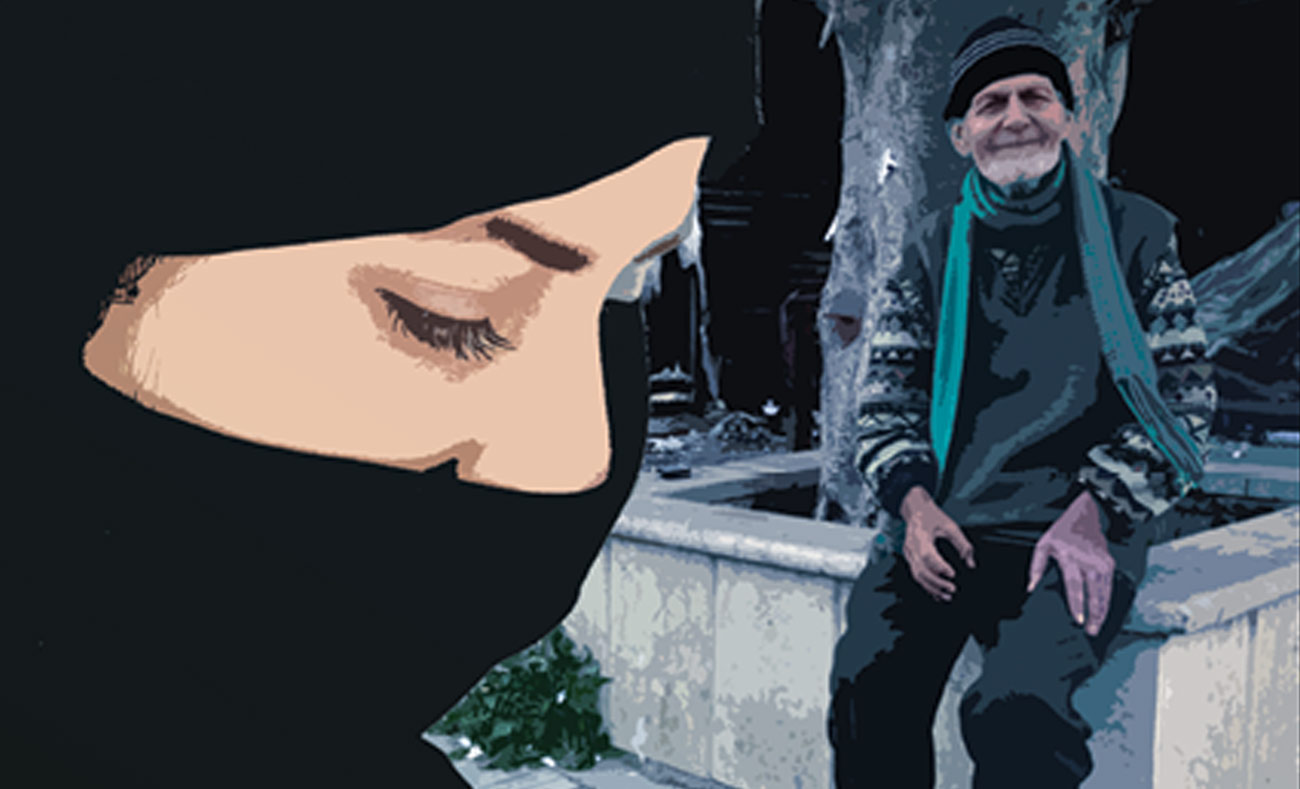
 (Modified by Enab Baladi)
(Modified by Enab Baladi)





 A
A
A
A
A
A

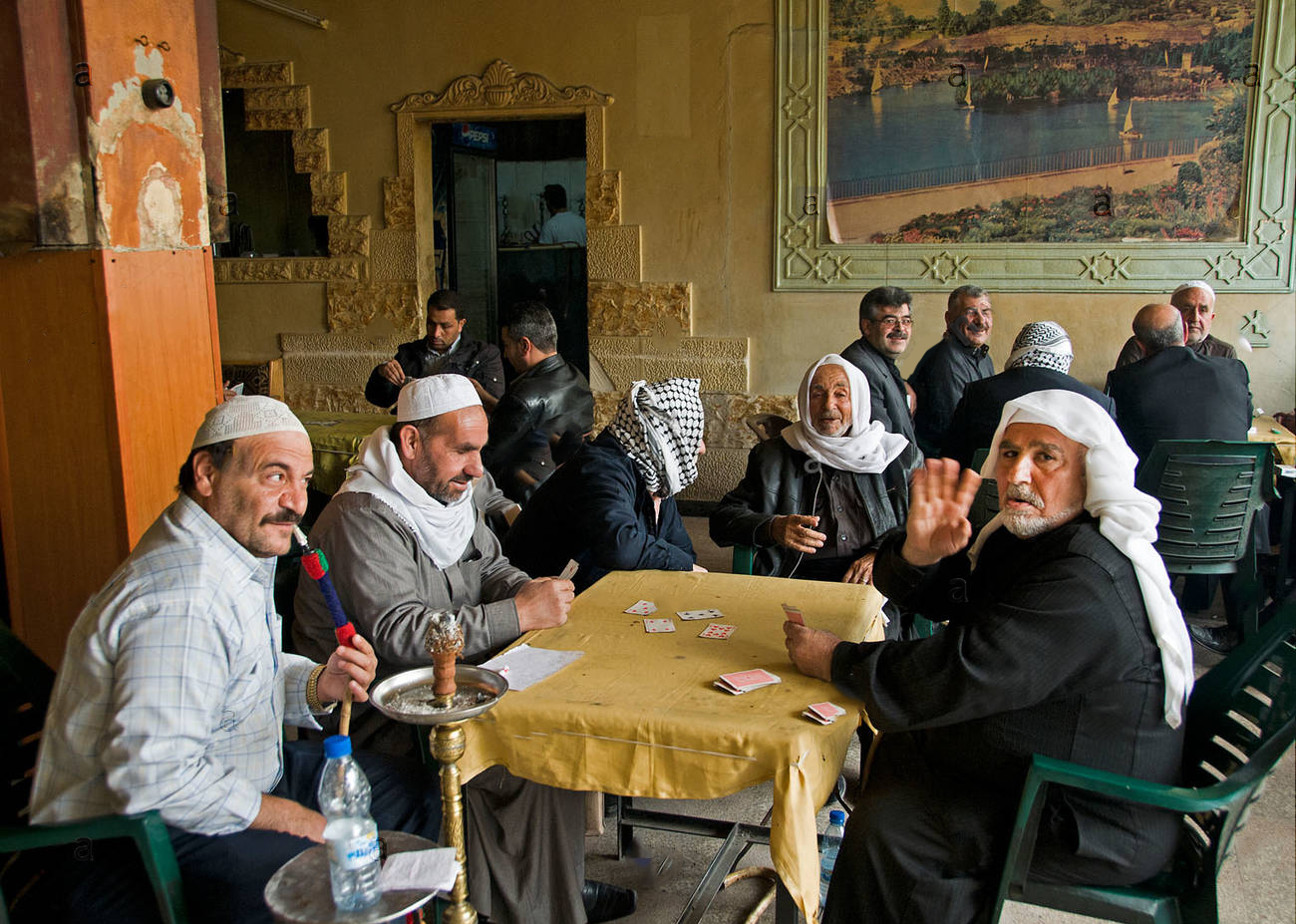
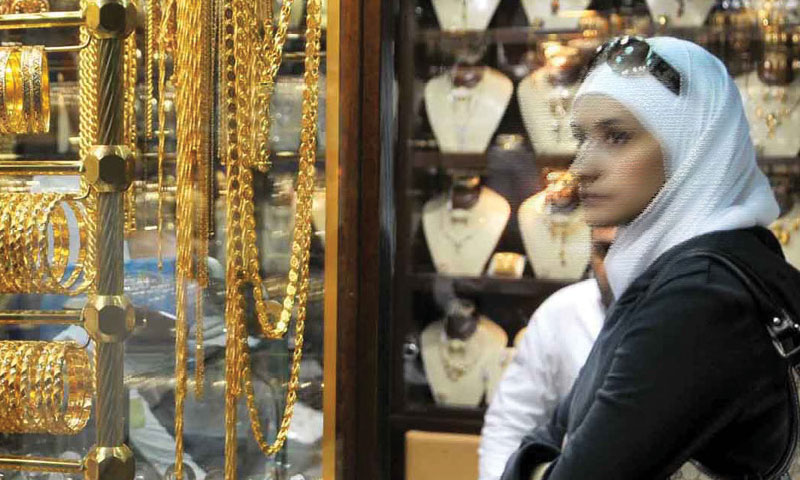



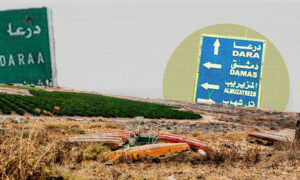
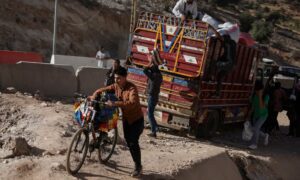

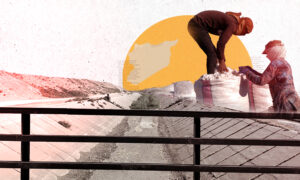
 More In-Depth
More In-Depth